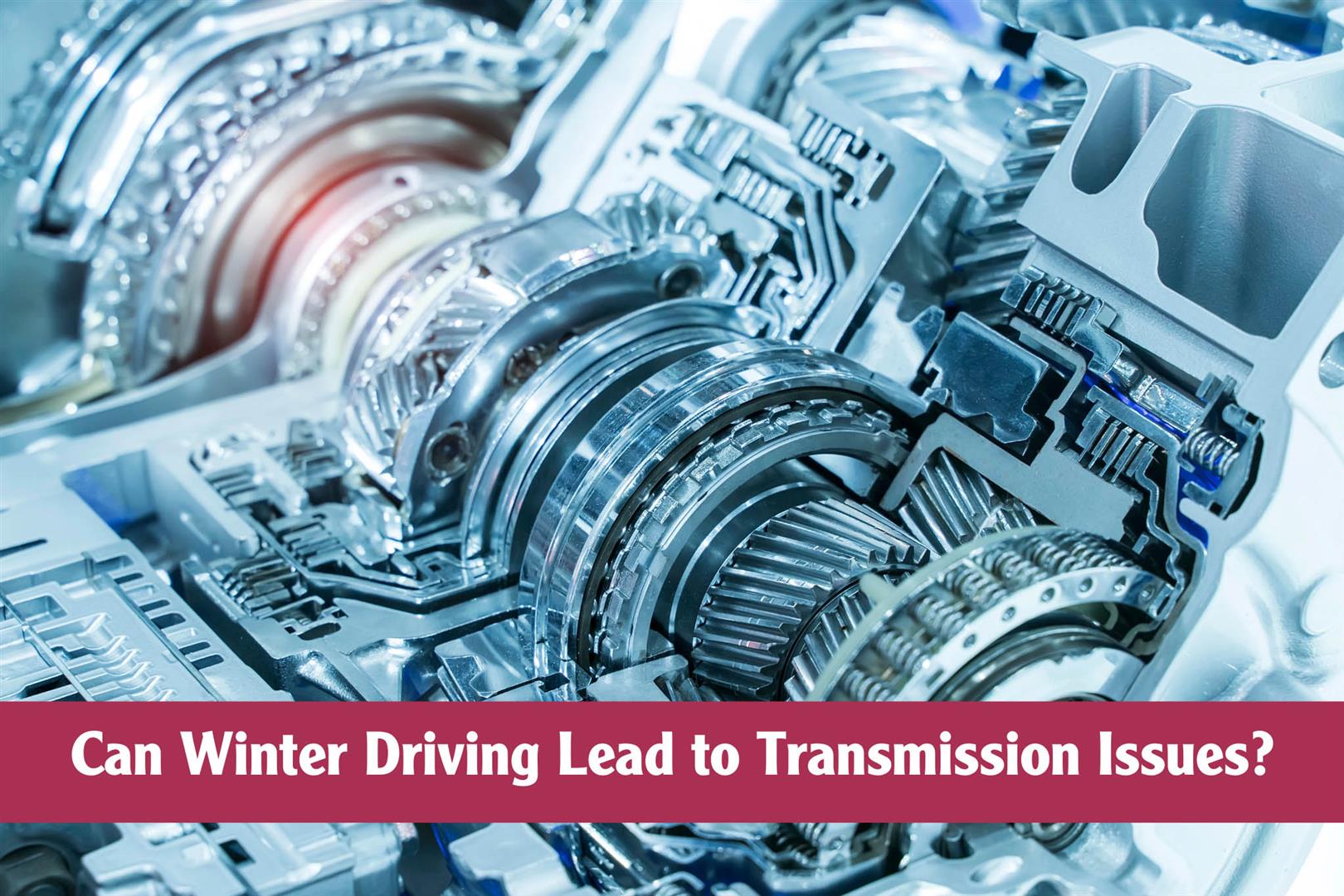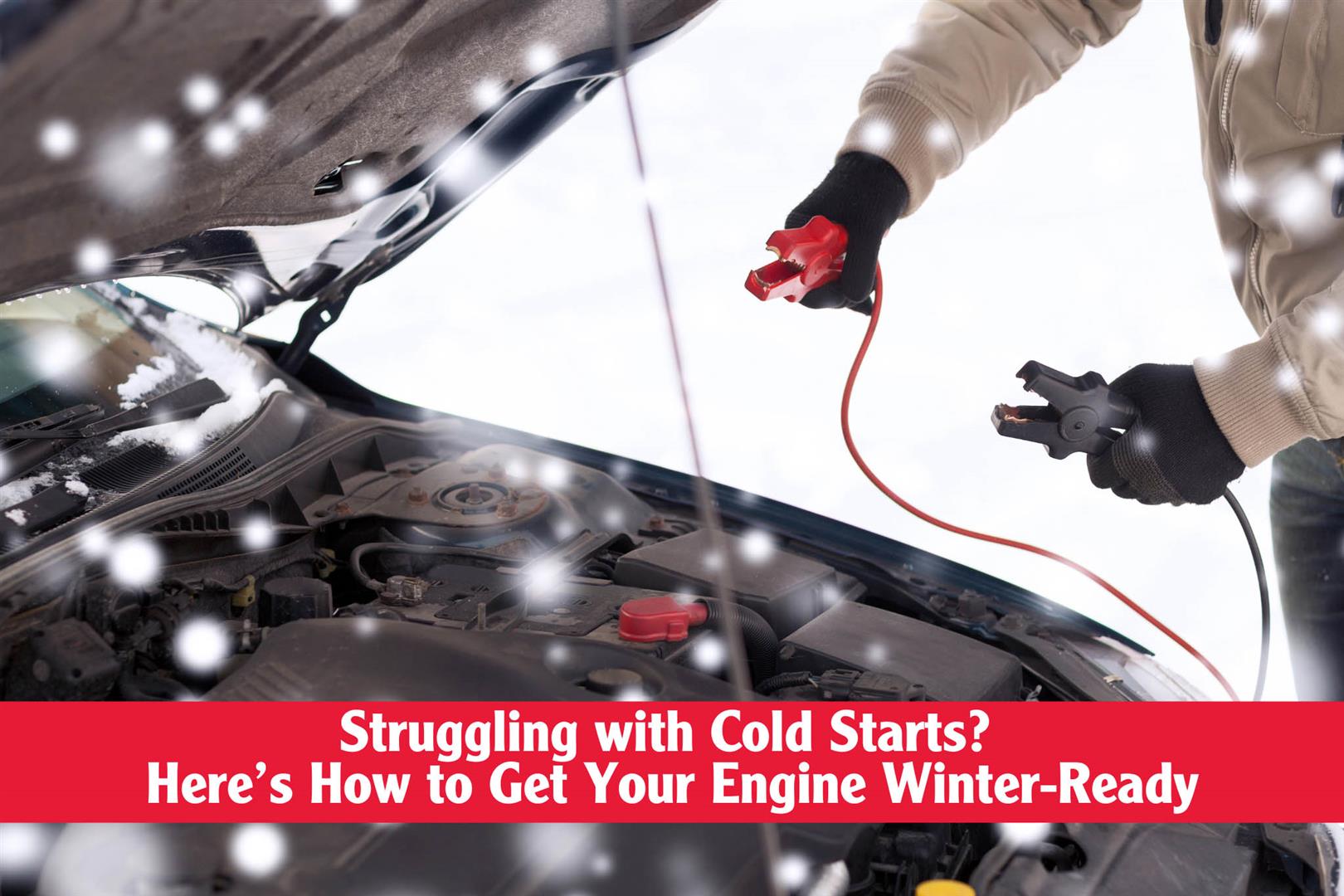Posted on 11/27/2024

Seeing the check engine light pop up on your Jeep Wrangler’s dashboard can be frustrating. Is it something simple or a bigger issue? Don’t worry! We’re here to break down some of the most common reasons your Jeep’s check engine light might come on and what to do about it. 1. Loose or Faulty Gas Cap Believe it or not, one of the simplest causes of a check engine light is a loose or damaged gas cap. If your gas cap isn’t tightly secured or has a crack, it can cause a pressure imbalance in your fuel system, triggering the light. Always check this first—it might save you a trip to the shop! 2. Oxygen Sensor Issues Your Jeep’s oxygen sensor monitors how much unburned oxygen is in the exhaust. If it’s malfunctioning, it can cause poor engine performance, reduce fuel efficiency, and trigger the check engine light. Ignoring this issue can lead to damage to other parts like your catalytic converter, so it&rsquo ... read more
Posted on 11/25/2024

When we think of winter car issues, transmission problems don’t usually top the list. Yet, cold weather can actually put extra strain on your vehicle’s transmission, especially here in Boulder where winter temperatures and conditions can be extreme. If your car feels a little sluggish on cold mornings or shifts harder than usual, it could be because of how the winter weather impacts your transmission system. Here’s why winter driving can take a toll on your transmission—and what you can do to protect it. Why Does Cold Weather Affect Transmissions? Transmissions rely on fluid to keep all their moving parts well-lubricated and working smoothly. In colder temperatures, however, transmission fluid thickens, which can make it harder for the fluid to flow properly and for parts to move freely. This can lead to is ... read more
Posted on 11/20/2024

Changing your car's oil is one of the most important things you can do to keep your engine running smoothly. But how often should you be doing it? The answer depends on several factors, like the type of oil you use, the age of your vehicle, and your driving habits. General Guidelines For most vehicles, it's recommended to change your oil every 5,000 to 7,500 miles if you're using conventional oil. If you're using synthetic oil, you can often go longer—up to 10,000 or even 15,000 miles between oil changes. Even though your vehicle can run up 10-15,000 miles with synthetic, that is often too long to go without having it inspected by a trusted mechanic, as other systems may develop problems in that time frame. Always refer to your owner's manual for the manufacturer’s recommendations. Driving Conditions Matter Something to bear in mind is that by most manufacturer's definition, driving in Colorado is considered ... read more
Posted on 11/18/2024

When winter arrives in Boulder, it brings more than just chilly weather and snowy roads. Cold temperatures can make engines work harder, especially when it comes to starting up on those freezing mornings. If you’ve ever struggled to get your car going on a frigid day, you’re not alone! But there’s a powerful trick to keeping your engine running smoothly this winter, and it has to do with a little-known, high-impact fuel system cleaner. Here’s what you need to know about how the right fuel system cleaner can make a big difference in winter driving. Why Winter Puts Extra Strain on Your Engine During the winter, the cold affects more than just your car’s battery—it also impacts your fuel system. Low temperatures can cause fuel to thicken, making it harder for your car to start. This is why a clean, well-maintained fuel system is essential for a smooth, reliable winter driving experience. Over time, fuel injectors and other critical p ... read more
Posted on 11/13/2024

If your Ford Escape has been stalling, it can be frustrating and concerning. Stalling can happen for several reasons, and it’s important to identify the issue before it leads to bigger problems. Here are a few common causes of stalling in a Ford Escape: 1. Dirty or Faulty Mass Air Flow (MAF) Sensor The MAF sensor measures the amount of air entering the engine and helps adjust the air-fuel mixture. If it’s dirty or malfunctioning, it can send incorrect readings, leading to stalling. 2. Clogged Fuel Filter or Fuel Pump Issues If the fuel filter is clogged or the fuel pump is failing, your engine may not be getting the fuel it needs. This can cause your Escape to stall, especially when accelerating or driving uphill. 3. Bad Idle Air Control Valve (IACV) The IACV regulates your engine’s idle speed. If it's dirty or damaged, your Escape might have trouble maintaining a steady idle, leading to stalling at stoplights ... read more